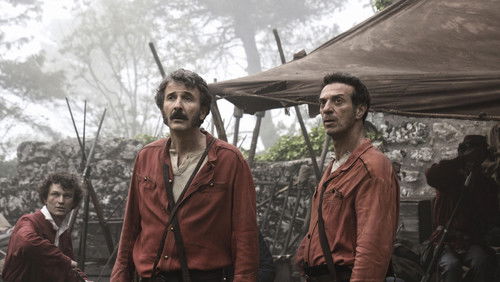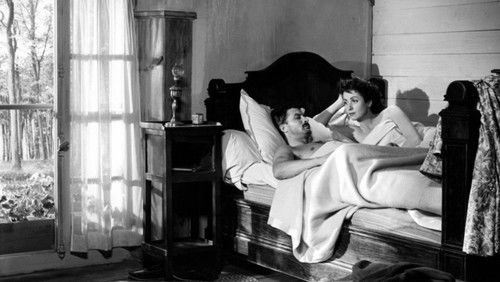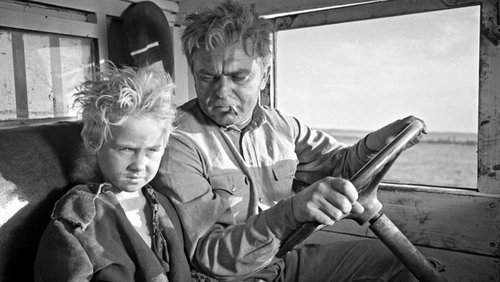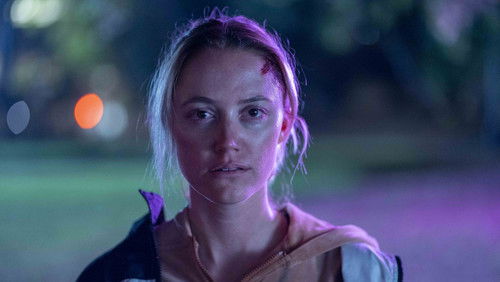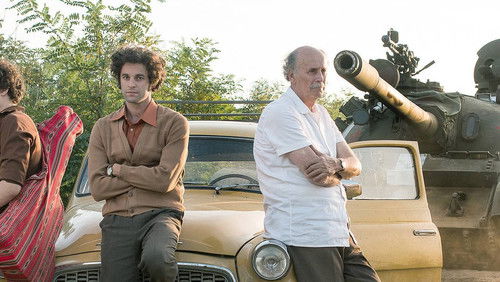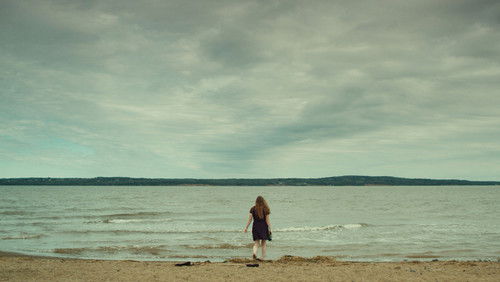The Lady with a Lamp (1951)
45KThe Lady with a Lamp: Directed by Herbert Wilcox. With Anna Neagle, Michael Wilding, Gladys Young, Felix Aylmer. Based on the Reginald Berkeley stage play, this compelling historical drama offers a depiction of the life story of Florence Nightingale (Anna Neagle), the young 19th-century Englishwoman famously drawn to a career in nursing. Traveling to Turkey during the Crimean War, Florence gains a reputation for being devoted to the care of wounded soldiers and for pioneering higher standards for sanitary hospital conditions.
“u0026quot;The Lady with a Lampu0026quot; is a fine British Lion biopic about Florence Nightingale. No film could do justice to such a personu0026#39;s whole life and achievements. But, this movie focuses on the early period for which she would become known as the founder of modern nursing. Nightingale was a social reformer and heroine in caring for British wounded during the Crimean War with Russia.u003cbr/u003eu003cbr/u003eThis film is based on a 1929 play of the same title by Reginald Berkeley. It uses a short scene of stock footage for a brief action segment of the war. That closely resembles scenes from the 1936 Warner Brothers film, u0026quot;The Charge of the Light Brigade.u0026quot;u003cbr/u003eu003cbr/u003eAnna Neagle is very good as the nurse who came from a wealthy background but devoted her life to improving hygiene and sanitation in medicine and medical care of patients. Michael Wilding, a frequently paired actor with Neagle, plays Lord Sidney Herbert. He served as British minister of war in the early years and was a close family friend and champion of Miss Nightingaleu0026#39;s cause and work.u003cbr/u003eu003cbr/u003eAll of the cast give good performances in this film. Edwin Styles plays her father, William Nightingale, who took a strong interest in Florenceu0026#39;s education. She was well-schooled in the liberal arts and mathematics. The latter proved helpful in her statistical records that supported her causes to reform medical care and wartime treatment of the wounded. She also could read and write half a dozen languages, including French, German, Greek and Italian.u003cbr/u003eu003cbr/u003eThe film is an interesting look at the troubles Nightingale endured in getting support and the resources to improve British medical treatment of soldiers. When she arrived in the Crimea in 1854, she had 38 volunteer nurses whom she had trained and 15 Catholic nuns. During her first winter at the barracks hospital in Scutari, 4,077 wounded soldiers died. Ten times more died from disease and illness such as cholera, dysentery, typhoid and typhus, than from battle wounds.u003cbr/u003eu003cbr/u003eIt seems odd that religion is barely mentioned in the film, because her Christian faith was important in Nightingaleu0026#39;s life and decisions. According to the Encyclopedia Britannica and biographies, Nightingale felt she had a calling from God to work in the nursing field and improve it. Two waves of Irish nuns, the Sisters of Mercy, joined her in the Crimea, and she became a lifelong friend of Mother Mary Clare Moore, one of the original founders and the superior of the orderu0026#39;s first convent in England.u003cbr/u003eu003cbr/u003eNightingale had no tolerance for prejudice in caring for the wounded or the sick. In 1853-54, she was superintendent of the Gentlewomenu0026#39;s Hospital. Itu0026#39;s official title was the Institute for Sick Gentlewomen in Distressed Circumstances. Translated, that means a hospital for governesses. In one scene, Nightingale is in a meeting with the womenu0026#39;s hospital committee. One woman says, u0026quot;This is a hospital for gentlewomen, Miss Nightingale. None youu0026#39;ll find as broad-minded as any of us here, but I do draw the line at admitting Roman Catholics.u0026quot; Nightingale responds, u0026quot;I want all you ladies of the committee to understand that this bigotry is meaningless to me. Unless we open our doors to all denominations, to Roman Catholics, to Jews, and if necessary, to Mohammedans, I must ask you to accept my resignation.u0026quot;u003cbr/u003eu003cbr/u003eMany things of note canu0026#39;t be covered in a feature film, but movie buffs may find some of these interesting. Nightingale established her nurses training school in 1860 at St. Thomas Hospital in London. She was a prolific writer. Her 1859 book, u0026quot;Notes on Nursing: What It Is and What It Is Not,u0026quot; is still used in the 21st century as the classic introduction to nursing. During the American Civil War, the Union Army asked Nightingale for advice for its treatment of wounded soldiers.u003cbr/u003eu003cbr/u003eAs Nightingale requested in her will, her family declined the invitation for her burial at Westminster Abbey in London. She is buried in the family plot at the pastoral St. Margaretu0026#39;s churchyard, with just a simple marble marker that has her initials and dates of birth and death. Its location is just a couple miles from her family home, Embley Park, in Wellow, Hampshire, just North of Southampton and its port on the English Channel.u003cbr/u003eu003cbr/u003eNeagleu0026#39;s husband, Herbert Wilcox, produced and directed the film. Its starkness in black and white impresses one of the crude and nearly barbaric conditions of wartime hygiene and care of the wounded. Nightingale lived to be 90 years old and died in 1910. But she lived to see widespread hygiene and safety practices in medical treatment well before the end of the 19th century. She received many honors late in life.u003cbr/u003eu003cbr/u003eHistory buffs, those in the medical field, and those who like stories of heroes should enjoy this film. The title comes from the fact that at night time, Nightingale would carry a lamp through the barracks and halls where the wounded men lay to check on them.u003cbr/u003eu003cbr/u003eHere are some favorite lines from the film.u003cbr/u003eu003cbr/u003eFlorence Nightingale, u0026quot;I have interviewed 128 women, out of which I have managed to find only 14 who are reasonably suitable. I shall now approach the religious institutions.u0026quot; Lord Sidney Herbert, u0026quot;Oh, youu0026#39;ll find them, I have no doubt.u0026quot;u003cbr/u003eu003cbr/u003eFlorence Nightingale, u0026quot;Army regulations should be a matter of common sense.u0026quot; Purveyor, u0026quot;Well, of course, if you think that mau0026#39;am, you donu0026#39;t know the army.u0026quot;u003cbr/u003eu003cbr/u003eFlorence Nightingale, u0026quot;Sidney, you have no time to be ill. Do you realize that the rate of mortality in the army….u0026quot;u003cbr/u003eu003cbr/u003eChancellor William Ewart Gladstone, u0026quot;It does not do to pamper the British soldier.u0026quot;u003cbr/u003eu003cbr/u003eFlorence Nightingale, u0026quot;And poor pa-pa has sought sanctuary in the library.u0026quot; Lord Sidney Herbert, u0026quot;Oh, wise pa-pa.u0026quot;u003cbr/u003eu003cbr/u003eFlorence Nightingale, u0026quot;Itu0026#39;s the answer to all my prayers – to all my dreams.u0026quot; Lord Sidney Herbert, u0026quot;Iu0026#39;m afraid, myself, that it may be the beginning.u0026quot;”

